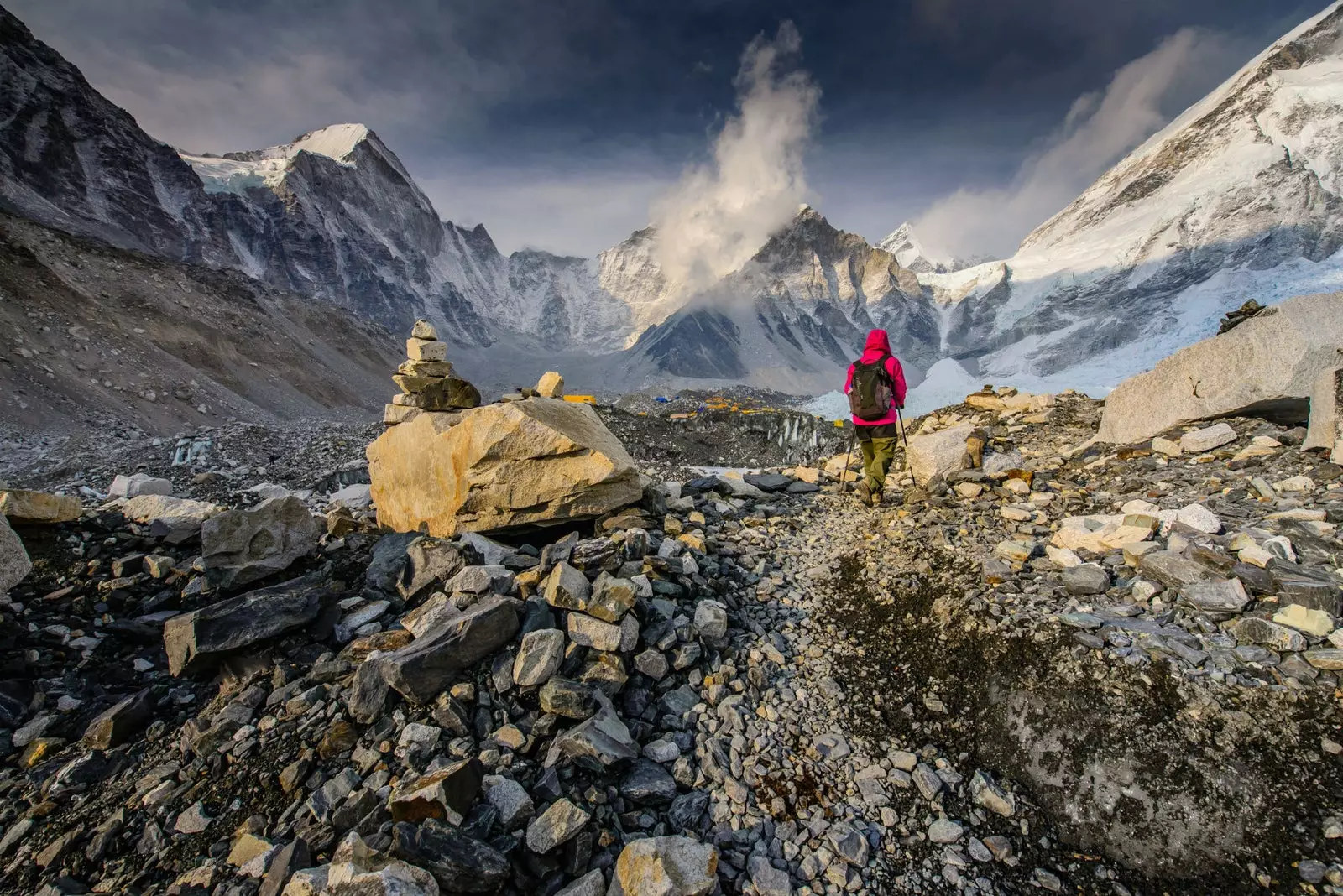
The goal: clean up Everest.
The Spanish Xiana Siccardi she traveled to Everest Base Camp for the first time in 2017 looking for a cure to the stress of her life, a space for reflection in the midst of chaos. "I was excited when I saw Everest, and I saw other mountaineers around me crying too . It's a very special moment," she says.
She fell in love with Nepal so much that she has returned numerous times. But it was the second time that would change everything; so she asked the sherpa Lakpa Nuru Sherpa to guide her through the mountains she had inhabited since her birth. "He took me to Mere Peak , with an altitude of 6,476 meters. That's when I discovered the exuberant beauty of the Himalayas: Lakpa and I walked for days in absolute solitude through the jungle, and through forests of bamboo and flowering rhododendrons fearing that bears would appear. Also in pre monsoon rain, hail and snow. We slept in sherpa houses without electricity or heating. , but where there was always a steaming plate of stew that felt wonderful under the candlelight, and we were lucky enough to reach the town of Lakpa, Khari Khola , about 70 kilometers from Everest, on the day they celebrated a great festival for the birth of Buddha. It was one of the best trips of my life, "says Siccardi.
That journey constitutes the heart of the Sherpas book. The other story of the Himalayas (Ediciones del Viento, 2020), in which both narrate both their adventures in Nepal and their conversations around themes such as family, friendship, mass tourism, traditions and love from culturally very different points of view.
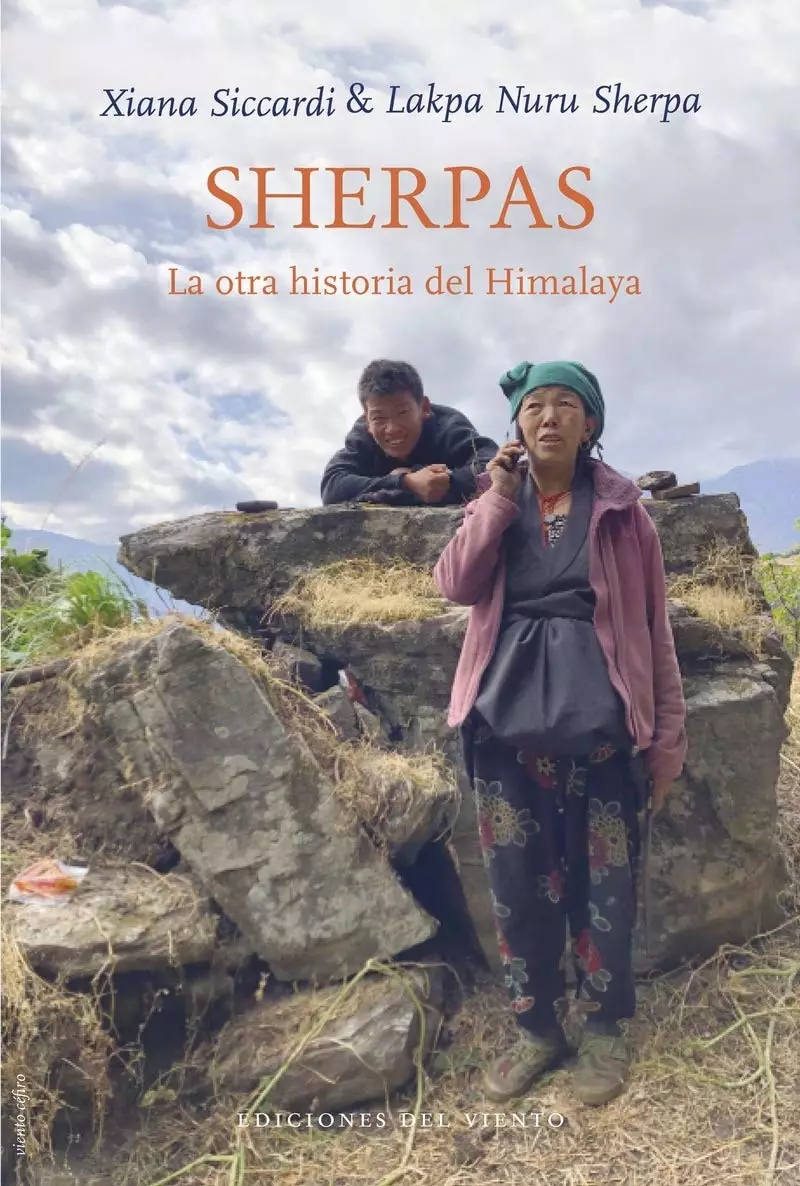
"One of the things that surprised me the most about Xiana is that she has a open minded . I think that in the West people are more open-minded and predisposed to be friendly. When I met Xiana, she also surprised me that she was able to express happiness or sadness and all the emotions that pass through it, something that in our culture we are not used to doing, because we don't usually express our emotions . I have also seen from many Westerners that when someone has a problem, they are always ready to help," he explains to Traveler Nuru.
In Siccardi's case, it was the goodness of the Sherpa people what struck her most about his experience in the Himalayas. "By believing in karma, they traditionally try to do good lavishly, they think a lot about their community and who they have in front of them," she affirms. "Another aspect is trust: they are more confident than us and they are less afraid of being hurt, because they do not let sadness fixate on them as much and as intensely as it happens to us, since sometimes bitterness can sour our character. I also learned from them overcome certain fears , and we explain it in our book through the episode where Lakpa and I walked through the woods for several days and I was terrified that a bear would show up, but he didn't."
FROM WRITING A BOOK TO REMOVING A TON OF WASTE ON EVEREST
The Sherpa people are heavily involved in tourism, which has made 2020 a very tough year for them. " In Nepal there is no public aid , which is why there are NGOs and even travel agencies and restaurants that are distributing food in the streets of Kathmandu", details Siccardi. "For that reason, we wanted to promote the removal of a ton of garbage from the Everest area , not only for the environment, but, mainly, to generate a little bit of employment among the porters who would have to be working in tourism and cannot bring even a coin to their homes and families".
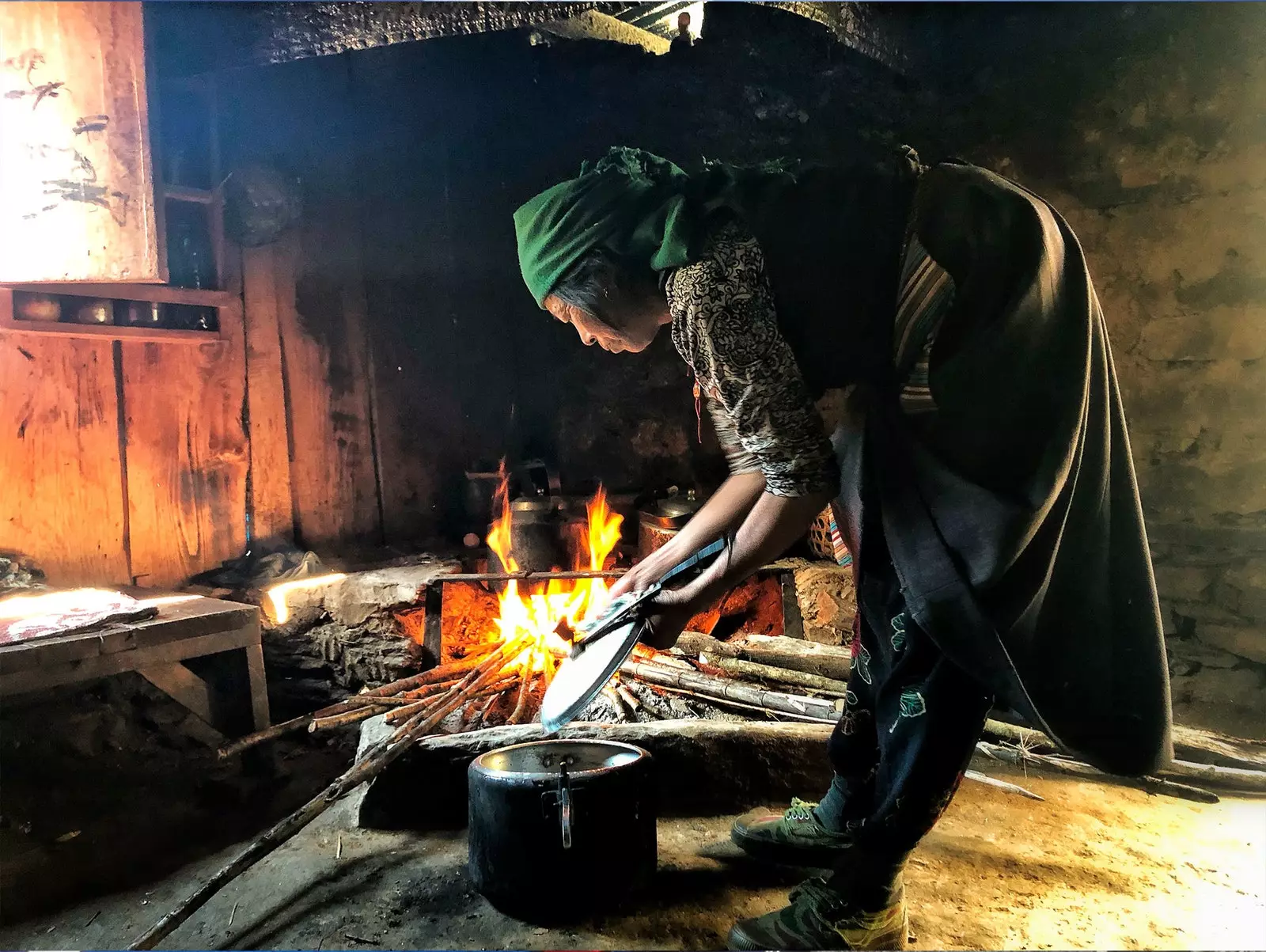
Lakpa's mother cooks some 'noodles' over the fire at home
To achieve this, the Spanish she has fully earmarked the profits from the book -which is now in its second edition- to the Nuru community, while the publisher itself has also donated part of the income. If sales go up, so will the amount that can be designated for this much-needed cleanup.
"To get to the top of Everest you have to carry many things in several transfers, such as tents, a full kitchen or oxygen cylinders , that the Sherpas are locating in the different camps in three or four trips. At the same time, garbage and waste are generated. The thing is, when you get to the top and come down, everyone is very tired, and therefore everything becomes much more dangerous, and there are things that are left there because the first thing is to save your own life . We Sherpas return to Everest Base Camp to collect everything, but we cannot freely return to Camp 4, in the so-called 'death zone', which is where most of the garbage is," says Nuru.
To try to alleviate the effects of the climbs, Nuru explains that every year an exclusively cleaning expedition is held to clean Everest. The campaign is also promoted Cash for Trash , which exchanges every kilo of rubbish brought down from the mountain for money.
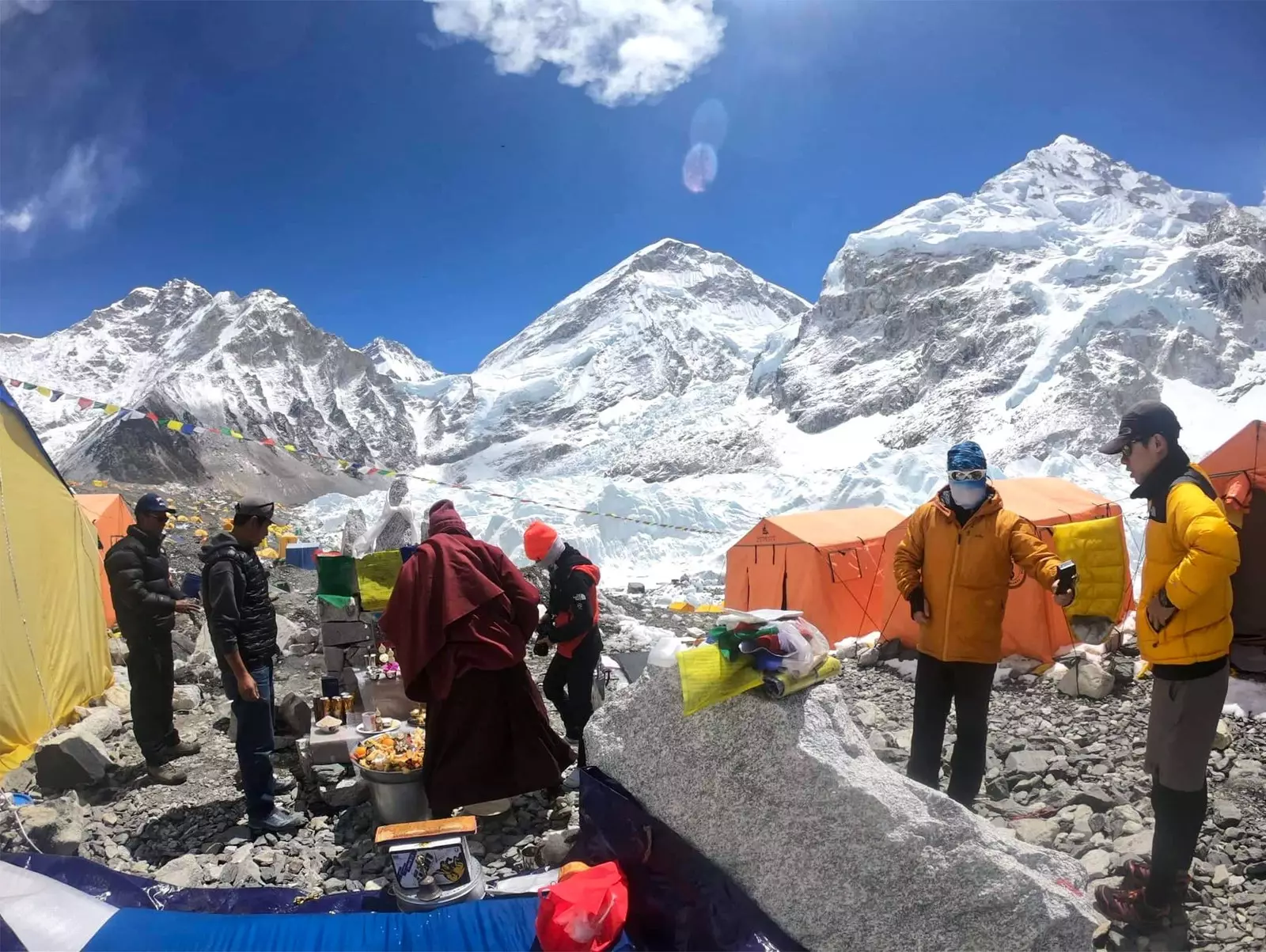
A lama prepares to perform the Everest ascent bid at Base Camp
Of course, it is a task that not everyone can do, so it is the porters who usually dedicate themselves to lowering the waste from the mountain , in another show of responsibility and generosity towards foreign tourism. In fact, they, who are the ones who know the mountain best -Nuru has already crowned it several times-, although never appear in the list of Everest climbers... or in the photos. "We Sherpas help climbers to reach the summits. On many occasions, they record or take photos themselves, and for this reason, sometimes we do not appear. In addition, from the top you have to descend quickly, for so there is no time to do many things when you are upstairs", justifies the Nepalese.
"In the book, a Sherpa I know laments that sometimes they are cut from the photos at the top. He told me a little sad," explains Siccardi. " Sherpas would give everything for the life of their client , and I don't know if we would do the same. On Lakpa's last expedition to Everest, in 2019, the day of the famous photo of the overcrowding that went around the world, Lakpa was there and saw that his client ran out of oxygen and gave him his, as well as his glasses protectors - mountain blindness is very dangerous. As a result, the client returned safely, and Lakpa returned from that expedition seriously ill , coughing up blood and ten kilos lighter".
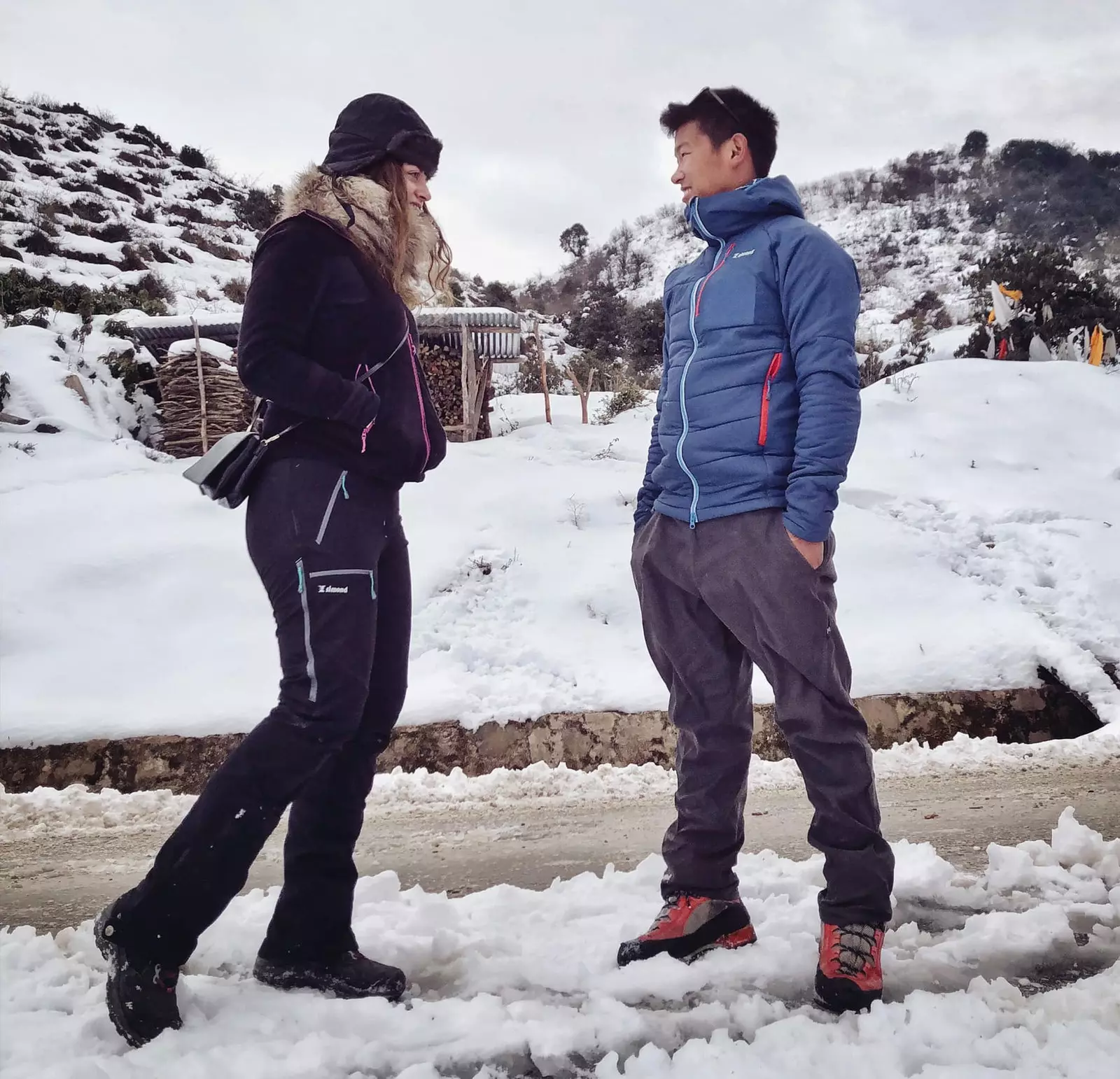
Siccardi and Nuru in Solukhumbu, Everest region
A NEW JOURNEY TO THE HIMALAYAS
In April, Siccardi and Nuru will be in the Himalayas, this time accompanied by other travelers who want to get to know the area in depth. " We will get lost in the land of the Sherpas departing from Kathmandu , touring Lukla -the hub of entry to expeditions to Everest- and traveling by helicopter to the ancient capital of the Sherpa people, Namche Bazaar. Afterwards, we will go off the road and visit absolutely lost Sherpa villages and Buddhist temples until we reach Lakpa's house, where we will meet his family and his community. AND It is a wonderful, exciting and, without a doubt, transformative journey , which deviates from the more conventional routes and in which we will share the other history of the Himalayas", says the author. You can learn more about the adventure on the website of the Historical Society of Travel and Expeditions.
